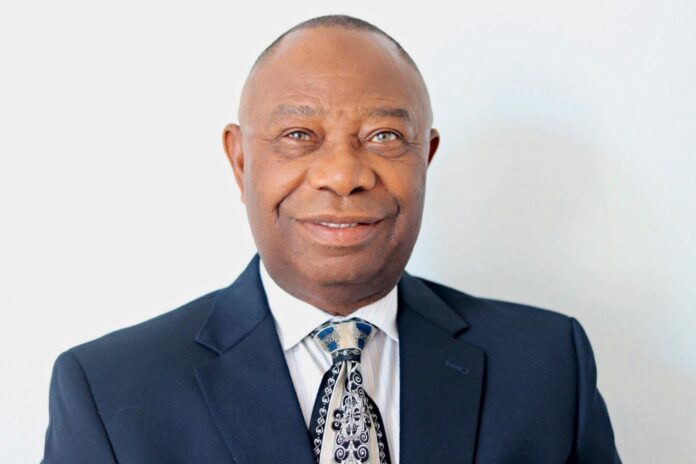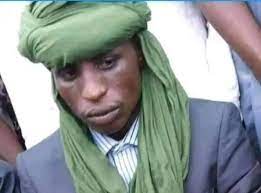Nigeria’s flawed elections: A catalyst for instability in Africa
By Emmanuel Ihim
In the heart of Africa’s democratic landscape, Nigeria stands as a giant, with aspirations to be the bastion of democratic values and a beacon of hope for the continent. However, the controversial and marred February 25, 2023 presidential election has cast a shadow over this ambition, leaving a void of moral leadership and amplifying the risk of democratic backsliding and coups within and across the African region.
A monumental event with far-reaching consequences
The story’s backdrop is the February 25, 2023 Nigerian presidential election. This event had the potential to reshape the political climate not only in Nigeria but throughout Africa. A credible, transparent, and fair election could have sent ripples of democratic inspiration far beyond Nigeria’s borders, serving as a model for other African nations grappling with instability, insurgency, and a lack of democratic governance.
READ ALSO: Betrayal of African democracy: U.S. foreign policies and Africa’s struggle for freedom
The promise of democratic leadership
As the self-proclaimed “Giant of Africa,” Nigeria was uniquely responsible for setting an example of democratic leadership. Its large population, diverse cultures, and regional influence endowed it with the potential to be a guiding light for other nations. A commitment to free and fair elections could have not only solidified its democracy but also provided a template for other countries to follow.
Flawed elections: A catalyst for instability
However, the 2023 Nigerian presidential election was marred by allegations of manipulation, irregularities, and questionable practices. Such flaws in the electoral process resonate far beyond Nigeria’s borders, creating a dangerous precedent for other nations struggling with similar issues. The lack of accountability and transparency in Nigeria’s 2023 election process was acknowledged globally and recorded by various international organizations, European Union Observers. The EU report exposes the crisis in Nigeria’s 2023 general elections. This has sent alarming messages across African nations that such practices are acceptable.
The unsettling rise of military regimes across the Sahel is a cause for global concern. With its recent electoral turmoil, Nigeria finds itself amid a regional crisis that threatens to undermine years of democratic progress. As military takeovers become alarmingly common, the need for stability, governance, and adherence to democratic principles is more critical than ever. The fate of the Sahel and West Africa hangs in the balance, and the international community must act decisively to prevent further destabilization and protect the region’s democratic future.
A void of moral leadership:
The Independent National Electoral Commission’s joint leagues with the Nigeria government manipulations of Nigeria’s election have created moral crises in authority and robbed leadership of its ethical foundation in the African region. Its actions – or lack thereof – have emboldened leaders in neighboring countries to follow similar paths, ignoring democratic principles and sidelining the voices of their citizens. The absence of a solid and robust democratic example weakens the region’s collective voice against coups, insurgency, and authoritarianism.
Fueling democratic backsliding:
Nigeria’s flawed elections have also contributed to the alarming trend of democratic backsliding. When a nation with such potential succumbs to electoral manipulation and misconduct, it fuels a sense of disillusionment among its citizens and sends a message that democratic norms are expendable. This weakening of democratic foundations creates fertile ground for military interventions, coups, and power grabs, further destabilizing the region.
The urgent need for redemption:
The recent happenings surrounding the PEPC judgment of September 6 bear testimony to the shadows that can loom large over democracy. But it is precisely in these moments that a nation’s strength and spirit are indeed revealed. As the political whirl winds roar and its tumultuous controversy prolongs electoral injustices and instabilities, the nation skids from political quagmires to crossroads of severe instability and existential threats gruesome insecurity.
When we amalgamate both the national and international disgrace elicited by recent revelations, such as those from Chicago State University concerning forged certificates, falsified ages, and an underlying web of impersonation and deception linked to President Tinubu, it eviscerates any remaining semblance of a moral foundation in leadership. This underscores not merely transient disturbances in Nigeria’s democratic journey but signifies storms menacingly poised to capsize our democratic sail, thereby amplifying the palpable tension that presently permeates our nation.
The opportunity of being a regional democratic leader fades. The revival of thrust and hope depends on the opportunity for Justice and democratic renewal – the restoration of the rule of law and a commitment to electoral integrity, transparency, and accountability. By addressing the flaws in its electoral system, Nigeria can regain its position as a guiding light for democratic principles and help counter the rise of coups and instability in the region.
As a pivotal player in Africa, Nigeria’s democratic leadership, or lack thereof, has consequences that extend throughout the continent. The nation has the potential to be a transformative force, curbing coups and instability, but only if it rises to the challenge of upholding the democratic values it aspires to represent. When corruption seeps into the roots, when the law that should act as a protective shield becomes a sword for the corrupt, when established norms and regulations are discarded in favor of ulterior motives of those in power, the bond of trust is broken, and legitimacy fades. A nation stands on a precarious precipice.
The present circumstances magnify the burden of responsibility upon the Justices of the Supreme Court on whose hands the joker of Justice lies – an opportunity – a paramount duty – to reinstate the faith of the Nigerian populace and the global community in our judiciary and democratic structures. Transparency, fairness, and swiftness in the dispensation of Justice, not just in essence but visibly so to all, are imperative. It is a poignant moment where the judiciary can stand tall as a beacon of hope, an epitome of Justice in times that are marred by doubts and uncertainties.
The eyes of all Nigerians, the eyes of the nation, and indeed the international community are upon the chambers of these Justices, watching, waiting, and hoping for Justice to be realized in its truest form. May the pages of history remember this moment as one where Justice did not falter, even amidst the storm!













